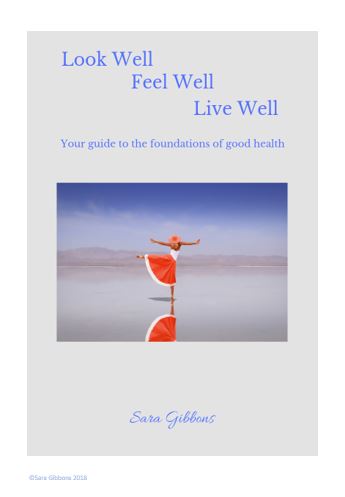It's essential to move past your breakup to make the new life you want a…
One Answer Could Be Magnesium
More and more people are suffering from stress, anxiety and a variety of chronic illnesses and struggling to find effective treatments. One answer could be magnesium.
Magnesium has been an undervalued macro-mineral. That means it is one of six major minerals needed by the body in larger amounts, and which together comprise 99% of its mineral content. (The other five for those interested are calcium, sodium, potassium, phosphorous and chloride.)
Why is magnesium important for the body?
Magnesium is essential for hundreds of functions within the body and is significant for a healthy nervous system, heart health, bone health, cellular energy and hormone regulation. It is also important for the relaxation and activation of muscle tissue.
In particular, magnesium is important for over 300 functions in the body which then further enable thousands of other processes.
It is an important element in the body’s mineral balance which is necessary to maintain cell life. This includes both enabling the stability of DNA and its repair due to environmental toxins.
Why are we short of magnesium?
Foods that are rich in magnesium are typically consumed less with a modern day diet; foods like dark leafy greens such as spinach and kale, almonds, brazil nuts and pumpkin seeds.
In addition, modern farming practices mean there is less of this critical nutrient in the soil and so less in the food it produces. Magnesium content in vegetables has seen a decline from 25-80% since pre-1950 figures
There is also evidence that stress, as well as some pharmaceutical medications, can deplete magnesium levels in the body.
What happens if we are deficient in Magnesium?
Clinically magnesium deficiency is difficult to detect. Testing can be misleading, and many of the symptoms of low magnesium are not unique to magnesium deficiency. This makes diagnoses very difficult and is why low magnesium levels can be completely unrecognised and therefore untreated.
Magnesium can also help calm chronic pain, improve energy and endurance in athletes, ease pain after surgery, relieve mood swings and bloating associated with PMS, cramps and probably much more.
Yet low levels are known in research circles as the silent epidemic of our times and are why, for those with chronic health issues, one answer could be magnesium.
Some of the issues that arise from low levels can be
- Depression
- Chronic fatigue syndrome
- ADHD
- Epilepsy
- Parkinson’s disease
- Sleep problems
- Migraine
- Osteoporosis
- Premenstrual syndrome
- Chest pain (angina)
- Cardiac arrhythmias
- Coronary artery disease and atherosclerosis
- Hypertension
- Type II diabetes
- Asthma
But the list may well be much longer.
And even those who don’t have these health issues, but are simply feeling less than fully well, have stress or anxiety issues, or are taking magnesium depleting medications for example, could well benefit from increasing their magnesium intake.
Magnesium can also help calm chronic pain, improve energy and endurance in athletes, ease pain after surgery, relieve mood swings and bloating associated with PMS, cramps and probably much more.
What is the best way to take magnesium?
Increasing magnesium levels is fortunately very easy to correct.
Diet
A diet high in magnesium-rich foods is a good place to start. Some choices to start with include spinach, broccoli, swiss chard, kale, okra, artichokes, avocados, nuts, legumes and seeds, quinoa, fatty fish, fruits and berries.
Oral supplementation
Taking an oral supplement, that passes through the digestive process, is one option, though some consider this not to be the best for absorption. Taking enough for the body’s needs may also result in sensitivity and a less than optimal speedy transit through the system, further reducing absorption.
Magnesium baths
Taking a warm bath for 20 minutes with magnesium chloride flakes added is another alternative. Of all the magnesium salts available, magnesium chloride has been found to have the highest bioavailability due to its superior solubility in water.
Topical magnesium
A third option is to apply magnesium to clean skin in either the form of a lotion or a concentrated spray. Applying through the skin means the magnesium can get into the bloodstream fast for optimum absorption.
One Answer Could be Magnesium
Scientists have known for many years now how essential magnesium is for good health. In addition, natural sources of magnesium have been both valued and used for nutrition and healing for centuries.
So for those suffering from chronic illnesses, or even those of us that want to maintain good health and prevent issues developing, one answer could be magnesium, or at least it could well be a part of the answer. Ensuring a sufficient supply of magnesium can cost-effectively make a significant difference to health and wellbeing.
If you would like support with addressing these or other lifestyle or health and wellbeing issues then feel free to contact me here, or click the button at the bottom of this page, for a no obligation chat, and we can make that happen together.
Get your FREE Health and Wellbeing guide here
If you would like further information or support from Sara Gibbons about divorce, lifestyle or health and wellbeing issues then feel free to ask and we can organise a call together.
If you are struggling with a relationship breakup or divorce then you can get the Free Course ‘How To Get Over Your Divorce Faster’ here






